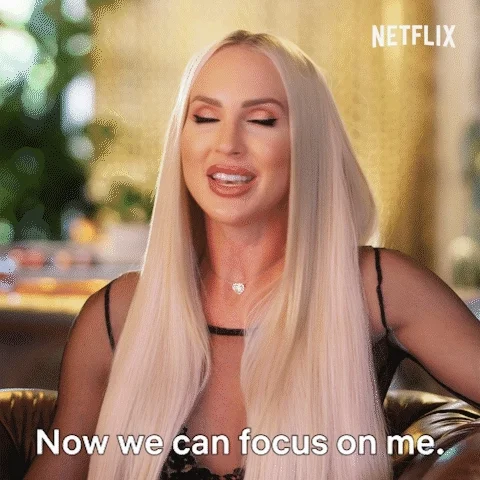
This logo isn't an ad or affiliate link. It's an organization that shares in our mission, and empowered the authors to share their insights in Byte form.
Rumie vets Bytes for compliance with our
Standards.
The organization is responsible for the completeness and reliability of the content.
Learn more
about how Rumie works with partners.
Does your partner make you feel like your needs aren't as important as theirs? Does it feel like your entire relationship is about them?

Learn how to identify if you're in a narcissistic relationship, know when it's time to leave, and be aware of the steps you can take to end the relationship.
What is Narcissistic Personality Disorder?
Narcissistic personality disorder (NPD) is a mental health diagnosis in which a person lacks empathy, expects admiration from others, and has a sense of entitlement.
For more information on the signs and symptoms of narcissistic personality disorder, check out the Byte How do I deal with a narcissist partner?
 Photo by Pisit Heng on Unsplash
Photo by Pisit Heng on UnsplashDid you know?
How Do I Know If My Partner is a Narcissist?
acts entitled
isn't empathetic to your needs
acts superior to others
thinks people are jealous of them
is manipulative
always blames others for their mistakes
has to be admired
focuses on their needs coming first
acts aggressively
can't handle feedback
is obsessed with success
doesn't pay attention to your needs
How Do I Know It's Time to Leave My Partner?

You’ve withdrawn from friends and family
You're experiencing ongoing anxiety and/or depression because of your relationship
Your relationship is impacting school or work

You’re being physically or sexually abused
Your partner is constantly monitoring you
Your partner is excessively jealous
You're afraid to have your own interests
Quiz
Stan's partner Walt hates it when Stan spends time with anyone else. He checks Stans phone to see who he texts with each day. Stan begins to avoid friends and family so Walt won't be angry with him. Which warning signs are present?
Walt's excessive jealousy if Stan shows anyone else attention, Stan withdrawing from his family and friends in order to keep Walt happy, and Walt's constant monitoring of Stan's text messages are all warning signs that Stan is in a relationship with a narcissistic partner. However, it's not clear that Stan is experiencing depression.
Why It’s Hard to Break Up With a Narcissist
It's Time to Leave
 Make A List
Make A List
Include examples of why you want to leave
Include examples of how your life has changed because of this relationship
Don't share the list with your partner
 Have A Plan
Have A Plan
Think through how you'll share the news with your partner
Know where you'll go or if you'll ask them to leave (if you're living together)
This will help you think clearly during a stressful time
 Get Rid of Relationship Reminders
Get Rid of Relationship Reminders
Pictures of trips and gifts can make it difficult to remember why you left your partner
Put items in a box if you want to keep them
Be mindful not to slip into the "it wasn't that bad" mindset
 Find Support
Find Support
Reconnect with friends and family
Share your plans to leave your partner
Ask your supporters to check in with you daily for a few weeks
Spend time with friends and family during the first few weeks after you leave your partner
 Find a Supportive Therapist
Find a Supportive Therapist
Will help you identify issues, even when unpleasant, in a way that feels supportive
Can guide you as you rebuild your self-esteem, self-confidence, and self-worth
Will help you explore what led you to a relationship with a narcissistic partner
Can help you explore ways to experience a healthy relationship
Quiz
After writing a pro/con list related to her relationship, Joan has decided it's time to leave her narcissistic partner. She has created a plan, connected with friends, and hidden all relationship reminders. What else can she do to prepare?
Joan shouldn't do anything that would escalate the situation before she leaves her partner. Finding a new partner, throwing out her partner's belongings, and sharing the news with her partner's family before speaking with her partner would possibly escalate the situation. Joan should find a therapist who will not only be able to support her through the break-up, but help Joan identify what attracted her to this type of partner in the first place. This will help Joan find a better match in the future.
Take Action
Leaving a narcissistic partner isn't easy.
If you decide to leave, remember that you'll get through this with a plan and support from those who care about you!

This Byte has been authored by
Sandi McKinney
Instructional Designer/eLearning Developer
